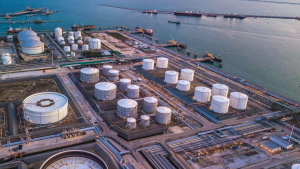Benefits Of Working Onshore
If you’re now starting out in the Oil, Gas and Energy industry, chances are you have dreams of one day becoming an Offshore Operator. For years, Offshore Operations has been positioned as a lucrative field, filled with travel adventures to numerous countries, and exorbitantly high salaries. For the young man or woman not yet burdened with a ton of responsibilities, what could be better? However, in an industry that is highly competitive in the employment arena, we recommend exploring all of your options. Onshore Operations yield quite a number of benefits, though they are not as heavily promoted as its counterpart Offshore Operations. In this blog post, we explore some of the benefits of Working Onshore, so that you can make an informed decision when making the choice between Land and Sea.
Like most things in life, major decisions require an assessment of different factors such as your personality type, your long and short term goals, and your familial circumstances. Your assessment should conclude with a decision that benefits you the most. Like Offshore, the Onshore industry proposes a number of benefits that make it a strong contender for a fulfilling career. These benefits are as follows:
- A MORE CONVENIENT WORK SCHEDULE.
When working as an Oil and Gas operator, long hours on the job can be expected. In both the Onshore and Offshore industries, operators work shift however, Onshore operators experience the convenience of being able to travel home immediately after work, as opposed to being on sea for weeks at a time when Offshore.
- MORE FAMILY TIME AND ENTERTAINMENT OPPORTUNITIES.
Persons that place high priority on spending quality time with family can benefit from the convenient work schedule awarded by Onshore jobs. Unlike Offshore jobs, where employees spend weeks away from their loved ones, Onshore employees can interact and engage with their loved ones every day. Furthermore, any sort of entertainment (be it an after work drink or catching a movie on its premiere date) doesn’t have to be postponed “until you are back on land.” A steady work schedule can help you manage both your time and personal affairs, and is definitely a benefit of Onshore employment.
- LIMITED EXPOSURE TO THE ELEMENTS
One thing to note about Offshore platforms is that there is heavy exposure to the varying weather conditions, 24 hours per day. If you do not like the outdoors, or cannot work through extreme weather conditions, you may want to try your hand at Onshore operations.
Let’s talk about money real quick!
Salaries play a big role when making a decision on which career you’d like to pursue. Due to the high level of safety risks, Offshore jobs do offer compensation rates that are significantly higher than other types of jobs, including its Onshore counterparts. However, it should be noted that the salaries for Onshore jobs can be in some cases higher than other jobs in other industries. As such, you can still live a fulfilling lifestyle working on Land.
Again, choosing a career is one of the biggest decisions you will make in life, and should not be taken lightly. When considering any type of employment, look at how it measures up to your goals and who you are as a person. If you live for family time or if you enjoy being in complete control of your time and personal affairs, it may be time to consider a career in the Onshore industry.
P.S. You can start your Onshore career by becoming skilled in Onshore Operations. KSPTL’s Land Based Production Operations Training Programme, offers an in-depth look at Onshore Operations and will provide you with every skill needed to function effectively in the field. Click HERE for more information.

